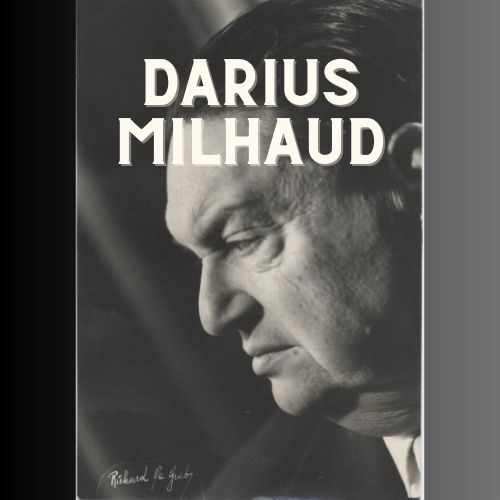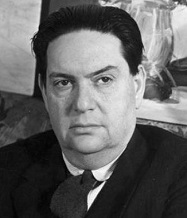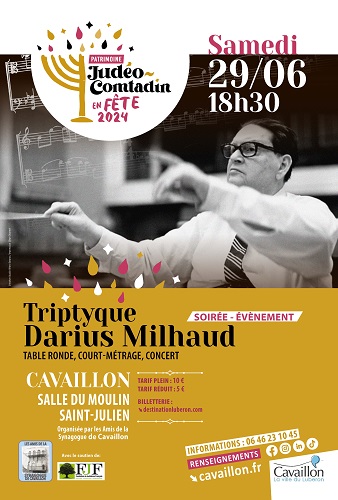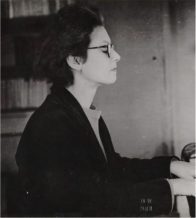
Daughter of Mathieu Barraine, solo cellist in the orchestra of the Paris Opera, who was removed from this position during the nazi occupation, like the Jewish musicians of the orchestra, Elsa Barraine studied in the Conservatoire national supérieur de musique de Paris (CNSM) with Georges Caussade, Jean Gallon and Paul Dukas (she was also in the same class as Olivier Messiaen).
In 1928, she received the second Grand Prix de Rome with Heracles à Delpes, then in 1929 the first Grand Prix with the cantata La Vierge guerrière on a poem by Armand Foucher, sacred trilogy on Joan of Arc.
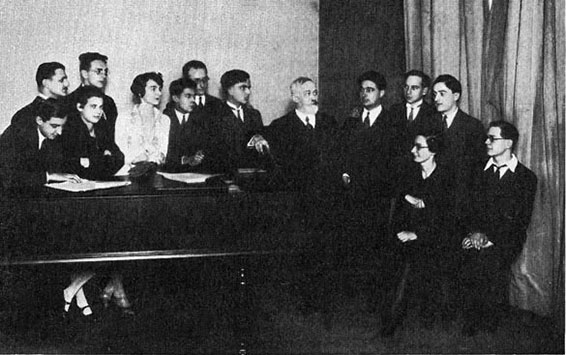
From 1936 to 1939, Elsa Barraine was choir master in the Orchestre national of the French Radiodiffusion. In 1938, she joined the French communist party, after the Munich agreement. In 1941, she was expelled from all her duties and joined the resistance. Thanks to Roger Desormière, she worked at the Opéra-Comique de Paris, was arrested and freed thanks to a police officer. Her father, who was Jewish, passes away the 24th September 1943. Avoiding a mouse trap, she assumed the clandestine name of Catherine Bonnard. Since the end of 1944, she was a music journalist in the newspaper l’Humanité.
From 1944 to 1946, Elsa Barraine was the director of the Orchestre National and music director of the publishing house Chant du Monde. In 1953, she was appointed teacher in the Conservatoire national supérieur de Paris, and taught there analysis from 1969 to 1973. In 1972-1974 she was inspector of the national lyrical theaters in the Direction of music in the Ministry of Culture. In the 1980’s, she started studying Chinese and Russian, traveled to China, and participated in many meetings and events in Soviet Union.
Elsa Barraine passed away the 20th of March 1999 in Strasbourg, at the age of 89 years old.
Her work
A talented composer, she wrote music for orchestra (three Symphonies, one Fantaisie for piano and orchestra, one Suite astrologique for small orchestra…), stage music (Le Roi-bossu, Le Mur, La Chanson du mal-aimé, Les Paysans…), chamber and instrumental music (Wind Quintet, Musique rituelle for organ, gongs and xylorimba…) and choral music : Hymne à la lumière for soprano and orchestra, Poésie ininterrompue (cantata on the poems of Paul Eluard), Cantata of Holy Friday.
Part of her work is inspired by Judaism : Pogromes, for orchestra (1933), 3 Hebraic Songs (1935), 4 Jewish Songs (1937), Suite juive, for violin and piano (1951)
Article written by Hervé Roten and Bruno Fraitag inspired by Musicologie.org and Musica et memoria
Browse the EIJM’s archives about Elsa Barraine
Listen to 3 excerpts of the Four Jewish songs by Elsa Barraine, samples from the album Confluence(s) by Benjamin Alunni
Listen to the radio broadcast on France Musique Musicopolis dedicated to Elsa Barraine

